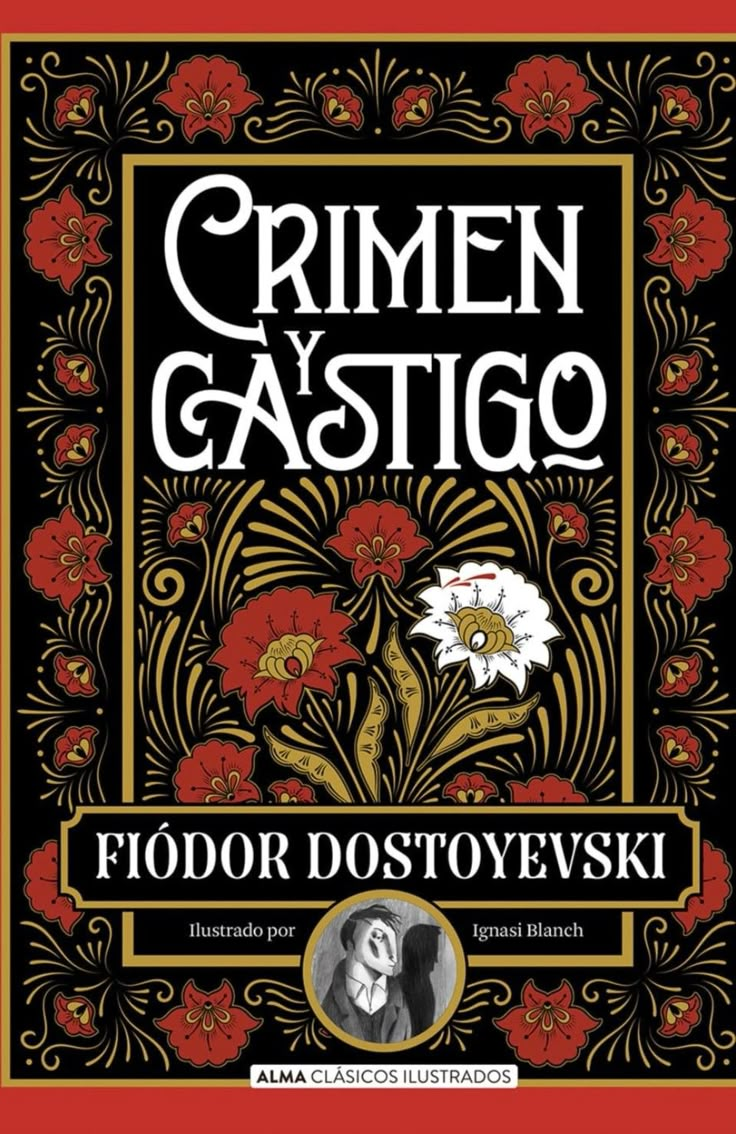
📚 Crime and Punishment by Fyodor Dostoevsky – Summary & Review
Synopsis:
Crime and Punishment is one of Fyodor Dostoevsky’s most powerful novels and a cornerstone of Russian literature. First published in 1866, it explores the psychological torment of Rodion Raskolnikov, a poverty-stricken student in St. Petersburg who murders a pawnbroker under the belief that “extraordinary men” have the right to commit crimes for a greater purpose. The novel delves into themes of morality, guilt, redemption, and the eternal struggle between good and evil. Considered a masterpiece of psychological fiction, Crime and Punishment continues to captivate readers worldwide with its intense exploration of conscience and human nature.
Personal opinion
I had never read Russian literature before. Themes of murder, anguish, and darkness were not, at first, my preferred style of reading. I thought: why read something unsettling, when reading should be a source of pleasure? But that thought was a trap. With ideas like that, one closes the doors to literary treasures that deserve to be discovered. With books, it is better to be free than to decorate the cage.
Dostoevsky captivates you from the first page to the last. He introduces you to the mind of Rodion Romanovich Raskolnikov, a complex, taciturn, solitary, and misunderstood young man, yet full of nuances. Forced to abandon his studies due to lack of money, Raskolnikov lives in contradiction: humble in resources but vast in knowledge, with an obsessive mind that drives him into isolation.
His crime does not arise solely from poverty. Raskolnikov dreams of greatness, compares himself to Napoleon, and justifies violence under a disturbing theory: that some extraordinary men throughout history shed blood and were remembered with statues for their “service to humanity.” From this distorted logic, killing a moneylender and keeping her wealth was not, in essence, a crime, but a useful sacrifice.
What is striking about the novel is how it reveals not only the crime but the true punishment: not the one imposed by society, but the one imposed by one’s own conscience. Guilt, mental torment, drastic shifts in thought, and that inner voice that gives no rest to the protagonist turn the reading experience into something intense and almost suffocating.
The most surprising aspect is that Raskolnikov does not feel guilty for murdering the moneylender, but for failing to live up to his delusions of grandeur. What consumes him is fear, nervousness, the possibility of being discovered, the failure of his plan. From the moment he commits the crime, he plunges into fever, paranoia, and a delirious state that drags him closer to madness.
For Raskolnikov, being caught meant the total collapse of his ideas, because a plan like his was not supposed to fail: he believed himself superior to everyone else. After committing the crime, he falls into such deep paranoia that he convinces himself everyone knows the truth. The torment is so unbearable that he even thinks of confessing, just to put an end to his agony.

Amid so much suffering, there are also glimpses of tenderness. One of my favorite passages is the loyal friendship of Razumikhin, who stands by Raskolnikov despite receiving nothing in return. This image is moving to me: a reminder of those friends who remain by our side even when we don’t deserve them.
Reading Tips
If you decide to read it, here’s a practical tip: pay close attention to the names. Dostoevsky often uses Russian diminutives and variations, which can be confusing at first, but it’s part of the cultural charm of the work
Conclusion
Ultimately, Crime and Punishment is not just a story about murder—it is a profound psychological journey into the human mind, its contradictions, and its desperate need for redemption. A novel that unsettles, but also leaves an indelible mark on its readers.
“Pain and suffering are always inevitable for a large intelligence and a deep heart.”
Fyodor Dostoevsky




